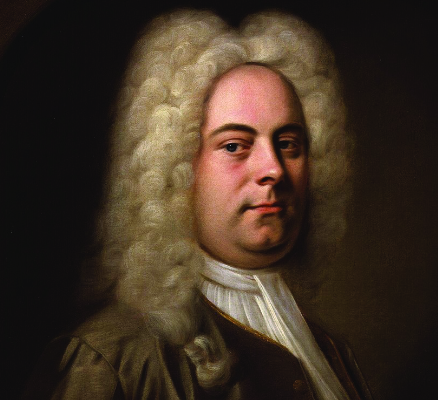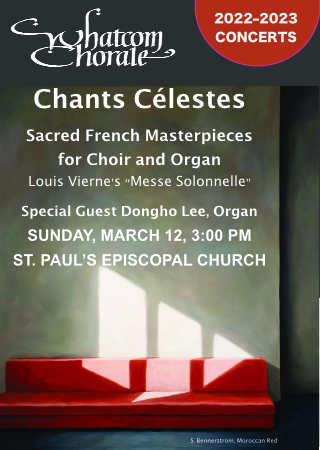
We dedicate tonight's concert to the people of Ukraine for their incredible courage, tenacity, and brilliant creativity in the face of unspeakable horrors, and for their fierce determination to fight for their people and their beloved homeland.
MESSIAH
George Frideric Handel
(1685-1759)
PART I
Sinfonia: Overture
Recitative Accompagnato (Tenor): Comfort ye, my people
Air (Tenor): Every valley shall be exalted
Chorus: And the glory of the Lord shall be revealed
Recitative Accompagnato (Bass): Thus saith the Lord
Air (Bass): But who may abide the day of His coming?
Chorus: And He shall purify
Recitative (Alto): Behold!
A virgin shall conceive
Air (Alto & Chorus): O thou that tellest good tidings to Zion
Chorus: For unto us a Child is born
Pifa (Pastoral Symphony)
Recitative (Soprano): There were shepherds abiding in the fields
Recitative Accompagnato (Soprano): And lo! The angel of the Lord came upon them
Recitative (Soprano): And the angel said unto them
Recitative Accompagnato (Soprano): And suddenly there was with the angel
Chorus: Glory to God in the highest
Air (Soprano): Rejoice greatly, O daughter of Zion!
Recitative (Alto): Then shall the eyes of the blind be opened
Air (Alto/Soprano): He shall feed His flock like a shepherd
Chorus: His yoke is easy and His burthen is light
INTERMISSION
PART II
Chorus: Behold the Lamb of God
Chorus: Surely He hath borne our griefs
Chorus: And with His stripes we are healed
Chorus: All we like sheep have gone astray
Chorus: Lift up your heads, O ye gates
Chorus: Their sound is gone out into all lands
Air (Bass): Why do the nations so furiously rage together?
Recitative (Tenor): He that dwelleth in heaven shall laugh them to scorn
Air (Tenor): Thou shalt break them with a rod of iron
Chorus: Hallelujah!
Part III
Air (Soprano): I know that my Redeemer liveth
Chorus: Since by man came death
Recitative Accompagnato (Bass): Behold, I tell you a mystery
Air (Bass): The trumpet shall sound
Chorus: Worthy is the Lamb that was slain
Chorus: Amen
By Nancy Goldfogel
In today’s repertoire Handel’s Messiah stands as a pinnacle of choral composition, overshadowing virtually everything the baroque master wrote during his fifty-year career. Beginning with its Dublin debut in 1742, critics rhapsodized over the oratorio’s captivating effect on the listener. As reported in The Dublin Journal: “Words are wanting to express the exquisite Delight [Messiah] afforded to the admiring crouded Audience. The Sublime, the Grand, and the Tender, adapted to the most elevated, majestic and moving Words, conspired to transport and charm the ravished Heart and Ear.” The reviewer’s enthusiastic praise still rings true, for in 275 years of performances by all manner of ensembles—grandiose and intimate, professional and improvised—this glorious work has never been revived, simply because its popularity has never waned.
Success was no novelty for Handel. Upon his arrival in 1710, London audiences raved over his extraordinary genius (though simultaneously disparaging his irascible nature), and during the next thirty years he composed prolifically for kings, queens, celebrated divas, and acclaimed castratos. Astutely catering to the demands of his aristocratic audience, Handel made a tidy living composing operas, completing his forty-second at the age of fifty-five. By 1741, however, Londoners had tired of the elaborate plots, ornate stage sets, and contentious artistes of Italian opera. (Handel once composed a duet featuring rival sopranos and granted precisely the same number of measures to each voice.) Moreover, tastes had turned against the dicta that all superior culture emanated from the Continent. The English desired English entertainments, performed in the more intelligible and satisfying English language.
Handel’s final four operas failed utterly at the box office, leaving him emotionally depressed, physically fragile, and financially depleted. Thus when Charles Jennens appealed to the composer’s restless creativity with an inspired new libretto celebrating the life of Jesus Christ, Handel welcomed the challenge. This sacred topic required setting as an oratorio because association with the operatic stage was considered blasphemous. Musically the oratorio format showcases solo arias, choral compositions, and orchestral interludes, but without the costly sets, machinery, and costumes essential to opera. Handel no doubt appreciated this economic advantage.
Handel composed Messiah during twenty-four days of ferocious concentration in August and September of 1741. The variety and complexity of choral and orchestral themes prove this creative torrent even more remarkable, although not unique in Handel’s career of compositional feats. It is true that four of the choruses (“His yoke is easy,” “And He shall purify,” “Unto us a Child is born,” and “All we like sheep”) derive their melodies from two previously written duets. Both duets, however, were completed in July of 1741 and were thus fresh in the composer’s mind and ripe for polyphonic elaboration. If strict accounting adds a month to the timeline for composition, it hardly diminishes the magnitude of his accomplishment.
Unlike typical oratorios, Messiah does not depict a biblical event or life story. Rather, it comprises a dramatic meditation on the meaning of “Messiah” and acclaims the mystery of godliness. Its structure follows the familiar (to Handel) three acts of Italian opera, with part one describing the prophecy and Christ’s nativity, part two relating Jesus’ sacrifice for human kind, and part three the Christian soul’s victory over death. Handel embraced Jennens’ libretto without reservation and invested his full genius to illuminate the text’s wide range of pathos and emotion. It is said that a servant overheard the master exclaim after finishing the “Hallelujah” chorus, “I did think I did see all Heaven before me and the great God Himself.” This report of angelic hallucinations is probably anecdotal. Nevertheless, Handel did conclude the original manuscript by penning SDG, “Soli Deo Gloria,” meaning “to God alone the glory.”
Despite the disdain of eighteenth-century religious authorities for the stage, Messiah capitalizes on Handel’s wealth of theatrical experience. The meaning of each word seems fitted to the musical line, engendering potent images from hovering angels to wandering sheep. For example, the opening tenor aria actually simulates the “crooked” made “straight,” with incongruous eighth note leaps and descents that resolve to sustained tones. The orchestral strings accompanying the soprano recitative, “And suddenly there was with the angel,” deftly mimic the fluttering of angelic wings. Immediately following, the choir exuberantly assumes the role of heavenly host with its dramatic entrance, “Glory to God.” And any soprano will agree that the opening measures of “His yoke is easy” are made less burdensome only by absolute trust in some form of divine intervention.
As an oratorio, Messiah is unusual in offering no dramatic roles, little quoted speech, and no dominant narrative voice. Orchestral support is reserved, and the use of trumpets is notably limited, making the brilliant brass entrances in the “Hallelujah” chorus, “The trumpet shall sound,” and “Worthy is the Lamb” even more stunning. Handel invested each chorus with an emotive quality that elevates the choir to the level of the soloists and drives the entire work forward. “Surely He hath borne our griefs” begins with the rhythmically declamatory “Surely,” repeated for emphasis and followed by an extended, dissonant legato line that manifests the intensity of Christ’s suffering. The key of F minor, used only for this movement and the next, accentuates the tone of anguish. Handel stressed the words “wounded” and “bruised” even further with the clash of chords built upon notes separated by a half step. By means of such jarring discordance the unimaginable pain of the crucifixion is transmitted in some small part to the audience.
The choir elaborates its depiction of Christ’s sacrifice in “And with His stripes we are healed,” also in F minor. This ingeniously constructed fugue intertwines a rather strident, unmelodic theme, underscoring the great price paid for salvation. The text continues in the next movement, however, with an admission of humanity’s innate proclivity for sin. As if to contradict the certainty of healing, “All we like sheep,” shifts abruptly to F major and begins with an approximate inversion of the four notes that began “And with His stripes.” Playfully, convoluted melismata then wend and wind through the polyphonic chorus, aptly characterizing humankind as a wayward flock of ovines, and betraying Handel’s sympathy for backsliding congregants as well as his penchant for wry humor. With impeccable dramatic timing Handel suggests that even the gravest scenes can benefit from some light-handed comic relief.
Writing for the New York Times in 1997, Alan Kozinn calls Messiah “a model marriage of music and text . . . From the gentle falling melody assigned to the opening words ‘Comfort ye’) to the sheer ebullience of the ‘Hallelujah’ chorus and the ornate, celebratory counterpoint that supports the closing ‘Amen,’ hardly a line of text goes by that Handel does not amplify.” Through extensive word painting Handel evokes visual imagery from his auditory art form. The music essentially occupies the text. Moreover, the interplay between the truth within the text and its elucidation by the music creates a tension that ignites audience imagination. Messiah is an homage to God, but Handel never forgets his audience as the essential player. His mission is to inspire the imagination to extrapolate beyond the senses, beyond what the eye can see and the ear can hear, and to create a space where faith persists long after the final chord dies away. Handel’s ultimate success rises on a sublime melody from a single voice proclaiming simply, with unwavering conviction, “I know that my Redeemer liveth.”

PART I
RECIT. (Tenor)
Comfort ye, comfort ye my people, saith your God; speak ye comfortably to Jerusalem; and cry unto her, that her warfare is accomplished, that her iniquity is pardoned.
The voice of him that crieth in the wilderness, Prepare ye the way of the Lord, make straight in the desert a highway for our God.
AIR (Tenor)
Every valley shall be exalted, and every mountain and hill made low; the crooked straight, and the rough places plain.
CHORUS
And the glory of the Lord shall be revealed, and all flesh shall see it together; For the mouth of the Lord hath spoken it.
RECIT. (Bass)
Thus saith the Lord of Hosts – Yet once a little while and I will shake the heavens,and the earth, the sea, and the dry land; and I will shake all nations, and the desire of all nations shall come. The Lord, whom ye seek, shall suddenly come to His temple, even the messenger of the covenant, whom ye delight in; Behold, He shall come, saith the Lord of Hosts.
AIR (Bass)
But who may abide the day of His coming, and who shall stand when He appeareth? For He is like a refiner’s fire.
CHORUS
And He shall purify the sons of Levi, that they may offer unto the Lord an offering in righteousness.
RECIT. (Alto)
Behold! A virgin shall conceive, and bear a Son, and shall call his name Emmanuel, God with us.
AIR (Alto) and CHORUS
O thou that tellest good tidings to Zion, get thee up into the high mountain; O thou that tellest good tidings to Jerusalem, lift up thy voice with strength; lift it up, be not afraid; say unto the cities of Judah, Behold your God!
Arise, shine, for thy light is come, and the glory of the Lord is risen upon thee.
RECIT. (Soprano)
There were shepherds abiding in the field, keeping watch over their flocks by night.
RECIT. (Soprano)
And lo! The angel of the Lord came upon them, and the glory of the Lord shone round about them, and they were sore afraid.
RECIT. (Soprano)
And the angel said unto them, Fear not; for behold, I bring you good tidings of great joy, which shall be to all people.
For unto you is born this day in the city of David a Savior, which is Christ the Lord.
RECIT. (Soprano)
And suddenly there was with the angel a multitude of the heavenly host praising God, and saying:
CHORUS
Glory to God in the highest,
and peace on earth, good will towards men.
AIR (Soprano)
Rejoice greatly, O daughter of Zion! Shout, O daughter of Jerusalem! Behold! Thy King cometh unto thee.
He is the righteous Savior, and He shall speak peace unto the heathen.
RECIT. (Alto)
Then shall the eyes of the blind be opened, and the ears of the deaf unstopped; then shall the lame man leap as a hart, and the tongue of the dumb shall sing.
AIR (Alto, Soprano)
He shall feed His flock like a shepherd; and He shall gather the lambs with His arm, and carry them in His bosom, and gently lead those that are with young.
Come unto Him, all ye that labor and are heavy laden, and He shall give you rest.
Take His yoke upon you, and learn of Him; for He is meek and lowly of heart: and ye shall find rest unto your souls.
CHORUS
His yoke is easy and His burthen is light.
PART II
CHORUS
Behold the Lamb of God, that taketh away the sin of the world.
CHORUS
Surely He hath borne our griefs, and carried our sorrows; He was wounded for our transgressions; He was bruised for our iniquities; the chastisement of our peace was upon Him.
CHORUS
And with His stripes we are healed.
CHORUS
All we like sheep have gone astray; we have turned every one to his own way; and the Lord hath laid on Him the iniquity of us all.
CHORUS
Lift up your heads, O ye gates; and be ye lift up, ye everlasting doors; and the King of glory shall come in.
Who is this King of glory?
The Lord strong and mighty, the Lord mighty in battle.
The Lord of hosts, He is the King of glory.
CHORUS
Their sound is gone out into all lands, and their words unto the ends of the world.
AIR (Bass)
Why do the nations so furiously rage together? [and] why do the people imagine a vain thing?
The kings of the earth rise up, and the rulers take counsel together against the Lord, and against His Anointed.
RECIT. (Tenor)
He that dwelleth in heaven shall laugh them to scorn; the Lord shall have them in derision.
AIR (Tenor)
Thou shalt break them with a rod of iron; Thou shalt dash them in pieces like a potter’s vessel.
CHORUS
Hallelujah! For the Lord God omnipotent reigneth.
The kingdom of this world is become the kingdom of our Lord, and of His Christ; and He shall reign forever and ever. King of Kings, and Lord of Lords, Hallelujah!
PART III
AIR (Soprano)
I know that my Redeemer liveth, and that He shall stand at the latter day upon the earth:
And though worms destroy this body, yet in my flesh shall I see God.
For now is Christ risen from the dead, the first fruits of them that sleep.
CHORUS
Since by man came death, by man came also the resurrection of the dead. For as in Adam all die, even so in Christ shall all be made alive.
RECIT. (Bass)
Behold, I tell you a mystery:
We shall not all sleep; but we shall all be changed in a moment, in a twinkling of an eye, at the last trumpet.
AIR (Bass)
The trumpet shall sound, and the dead shall be raised incorruptible, and we shall be changed.
CHORUS
Worthy is the Lamb that was slain, and hath redeemed us to God by His blood, to receive power, and riches, and wisdom, and strength, and honour, and glory, and blessing.
Blessing and honour, glory and power, be unto Him that sitteth upon the throne, and unto the Lamb, for ever and ever.
Amen.
To purchase tickets, use the ticket link on this site or on the Whatcom Chorale website or purchase directly from Mount Baker Theatre. There is a look alike scalper who will not allow you to select individual seats but will charge you $80 per ticket! When purchased as specified above, tickets are $22.50 for all seats.
Tickets may also be purchased at the door on the day of performance. However, for best seats, we recommend early purchase.


